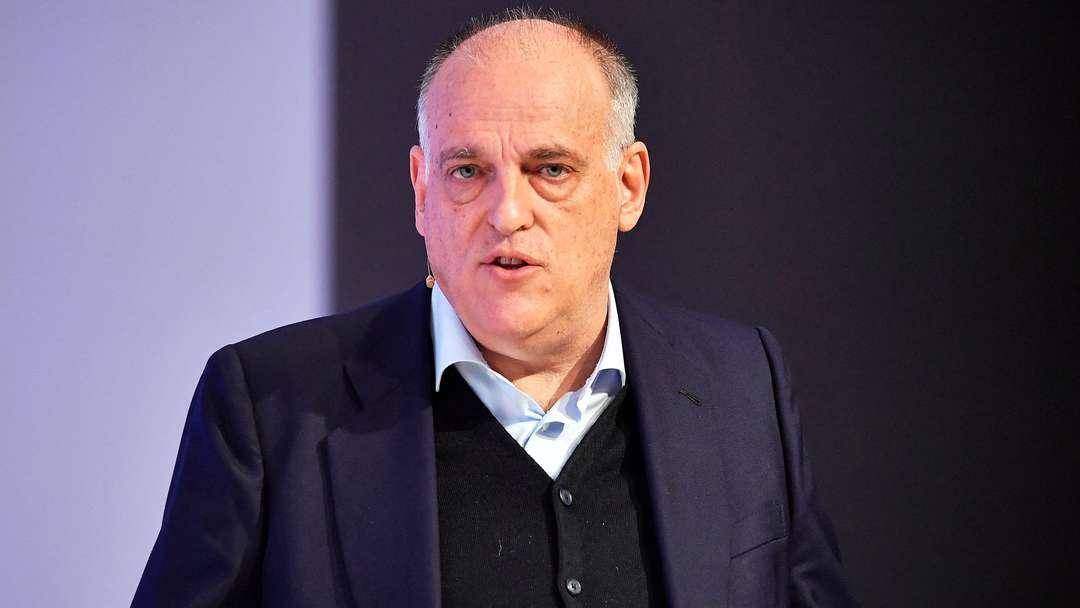Barcelona’s Nico Williams Transfer Drama: La Liga’s Financial Rules Take Center Stage
The race to sign Athletic Club’s electrifying winger Nico Williams has taken a dramatic turn, with La Liga president Javier Tebas issuing a stern reminder to Barcelona that financial rules will not bend, even for a club of their stature. As the Catalan giants navigate a maze of Financial Fair Play (FFP) regulations, the pursuit of the €58 million star has sparked intrigue, tension, and a formal complaint from Athletic Bilbao. This unfolding saga is more than just a transfer story—it’s a high-stakes battle against the clock, with Barcelona’s financial creativity under intense scrutiny.

At the heart of the drama lies La Liga’s unforgiving 1:1 rule, a regulation that restricts clubs to spending only what they earn or save on player wages. Tebas, known for his no-nonsense approach, has made it clear that Barcelona, despite their storied legacy and global appeal, will receive no special treatment. The club, currently grappling with a wage bill that exceeds La Liga’s financial thresholds, must find a way to balance their books before they can officially register Williams. This is no small feat for a team that has been walking a financial tightrope in recent years, with president Joan Laporta openly acknowledging their non-compliance with the 1:1 rule.
The situation took a contentious turn when Athletic Bilbao lodged an official complaint with La Liga. Barcelona’s sporting director, Deco, had publicly declared the club’s intent to pursue Williams, a move that Bilbao argued breached protocol during the player’s “protected period” under FIFA regulations. While Tebas clarified that La Liga’s role is not to meddle in transfer negotiations, the league’s focus remains laser-sharp on enforcing financial discipline. Bilbao’s resistance is understandable—Williams, with his blistering pace and flair, is a prized asset, and the club is determined to hold firm against Barcelona’s advances.

Yet, there’s a glimmer of hope for Barcelona fans. Tebas recently hinted that the club is inching closer to compliance, having slashed their wage bill by over €200 million through strategic financial maneuvers. With a turnover approaching €1 billion, Barcelona’s financial machine is formidable, and the amortization of Williams’ €58 million release clause over the length of his contract could make the deal feasible. If they can cross the final hurdle of La Liga’s FFP requirements, the path to signing Williams could open swiftly, with reports suggesting an agreement in principle is already in place with the player and his representatives.
What makes this transfer saga so captivating is the broader context. Barcelona’s pursuit of Williams isn’t just about adding a dynamic winger to their squad; it’s a test of their ability to adapt to a new era of financial scrutiny in European football. La Liga’s strict enforcement of FFP rules reflects a growing trend across the sport, where even the biggest clubs must operate within their means. For Barcelona, a club accustomed to splashing cash on marquee signings, this is a humbling reminder that ambition must be matched by fiscal responsibility.

The stakes couldn’t be higher. Williams, with his dazzling performances for Athletic Bilbao and Spain, represents the kind of talent that could elevate Barcelona’s attack to new heights. His potential arrival would send a statement of intent to rivals, both domestically and in Europe. But the clock is ticking, and La Liga’s watchful eye ensures there’s no room for shortcuts. Will Barcelona pull off the financial gymnastics needed to secure the deal, or will Athletic Bilbao’s defiance and La Liga’s rigid rules derail their plans?
As the transfer window heats up, this story is one to watch. Barcelona’s next moves will not only determine whether they land their target but also signal how they navigate the delicate balance between ambition and financial reality in modern football. For now, the spotlight remains on Camp Nou, where every decision could tip the scales in this gripping transfer tale.






